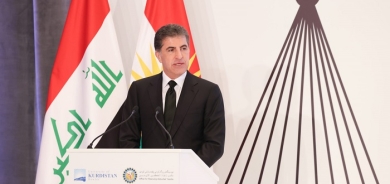Cannes films tackle war-weariness with martial arts and Tamil Tigers

Hollywood stars are not the only ones luring fanboys and groupies to the Cannes Film Festival. Some directors enjoy similar cult status among Cannes’ legion of film buffs. Last year, ardent fans jumped, shrieked and hollered at the press screening of “Goodbye to Language” by French film legend Jean-Luc Godard. As usual, Godard didn’t even show up. Another filmmaker with a legion of devotees is Taiwan’s Hou Hsiao-Hsien – or “HHH” as his French fans like to call him. They’ve been tweeting furiously since Wednesday’s competition screening of Hou’s “The Assassin”, hailing a masterpiece that has purely and simply “assassinated all competition”.
In fact, hardly anyone gets killed in this beautifully contemplative movie set in 9th century China, in the dying years of the once mighty Tang dynasty. “The Assassin” is Hou’s sixth competition entry at Cannes, and the first in ten years. It pursues the director’s fruitful collaboration with Taiwanese actress Shu Qi, who plays the lethal assassin Yinniang. In the film’s opening scene, the black-clad hit woman soon gives a taste of her prowess by slitting the throat of a man on horseback. But she falters at the next mission, moved to pity by her target’s infant son. Her skills with a dagger are unrivalled. But, as her mentor puts it, “her soul is still a prisoner of sentiment”. In order to address this flaw, she is dispatched to her native province of Weibo with an order to kill her cousin, Lord Tian (played by another Hou regular, Chang Chen).
Hou has done something very personal and new with the martial-art genre. His slow-moving, metaphysical movie marks a radical break from the usual action-packed historical epics with their endless sword fights. “The Assassin” is full of poise and poetry. It is a spectacle of ravishing silk robes and scenes of astonishing beauty. It shows people gazing at moonlit landscapes and saying nothing, mist oozing in and out over a placid lake, and goats munching and lazing about in a patch of grass. There is precious little going on – and what little does happen is often hard to comprehend. Viewers eager for combat scenes will be left hungering for more. But when action does strike, it does so with balletic grace and lightening speed, like a dagger thrown at the audience.
Audiard fudges finale
For all its aesthetic refinement, “The Assassin” left me wondering what Hou is trying to say with his enigmatic movie, and I suspect the lack of a clear purpose may hinder its chances when it comes to awarding the Palme d’Or. With just two days left in the competition, the absence of a clear frontrunner this year is visibly upsetting critics and spectators alike. Though warmly applauded, the screening of Jacques Audiard’s “Dheepan” on Thursday failed to end the wait for a definitive masterpiece. Like “The Assassin”, the French director’s latest competition entry features a trained killer eager to end the bloodshed, though the comparison ends there.
“Dheepan” opens with a sequence in Sri Lanka, circa 2009, as the country’s civil war draws to a close. The defeated Tamil Tigers are burning the bodies of their comrades and trading military fatigues for civilian clothes. One of them, Dheepan (Antonythasan Jesuthasan), forms a fake family with a woman and a girl found in a refugee camp, and escapes to France. The three of them eventually settle down in a run-down housing estate ruled by drug dealers, where Dheepan lands a job as the building’s caretaker. His “wife” Yalini (Kalieaswari Srinivasan) also finds work looking after the aging uncle of a ganglord, while the young Illayaal (Claudine Vinasithamby) has a hard time adapting to the local school. The trio of actors excel in their respective roles, and their tentative attempts to create the intimacy of a real family give rise to the film’s most touching and successful scenes.
Audiard has said his film is not about civil war or France’s derelict suburbs, but about a fledgling family’s struggle in a harsh and alien environment. It says nothing about the large Tamil community that has found a bustling new home in northern Paris. There are merely hints at the presence of other Sri Lankan Tamils in the area, including a brief and ugly encounter with a “colonel” who attacks Dheepan for giving up on the Tigers’ cause. The protagonist’s repressed guerrilla instincts resurface in the film’s latter part as the housing estate slides into war, but the transition is far from seamless. Audiard reportedly finished his film just in time for submission to the festival. Its finale was clearly rushed and ill-conceived, capping the family drama with an astonishingly clumsy comparison between France’s flawed integration model and a bizarrely idyllic vision of Britain as a sunny, flowery Eden where all faiths and races live in harmony.
France24













